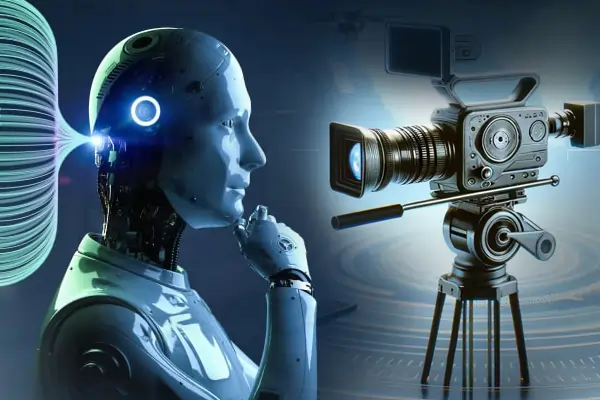The video production world is experiencing a giant leap forward, thanks to the swift emergence of artificial intelligence (AI) and automation. From voiceover work and script analysis to robot editing and viewer analytics, AI is speeding up all phases of video creation. Whether you are a marketer, filmmaker, or content creator—these smart tools are keeping high-quality video-making faster, smarter, and more convenient than ever. In this blog, discuss how AI-powered video solutions are revolutionizing the paradigm of content creation and analysis—making creators care less about how and more about what.
AI in Pre-Production: Planning and Scripting Made Easy
The process of film production starts much earlier than the actual shooting. Pre-production is increasingly assisted by artificial intelligence nowadays, making time-consuming task automation easier. Software such as Filmustage utilizes machine learning technology to read scripts and build breakdowns, such as details on cast, location, props, and so on. Automation speeds up the planning process, enabling filmmakers to get more of the creative thinking done and less of the paperwork.
Also, AI-based platforms can prioritize risks to identify areas of potential issues and concerns such as copyright and risks in scripts. This is predictive prevention that avoids issues from happening in the first place, thereby ensuring production becomes more efficient.
AI in Production: Increasing On-Set Efficiency
On the production side, artificial intelligence advancements are enhancing the efficiency and creativity of production. AI cameras can scan lighting, camera placement, and actor performances in real-time with instant feedback to the crew. This enables the crew to make on-the-spot corrections to produce the end product even better.
Moreover, artificial intelligence is also used to be integrated into visual effects (VFX) production pipelines, utilizing automation in scene detection and motion tracking. It not only accelerates the VFX process but also minimizes costs, hence the high-quality effects are available at a better price for more productions.
AI in Post-Production: Editing and Sound Design Automation
Post-production is where artificial intelligence truly excels as it provides tools that can automate high-level edit processes. AI can scan raw footage and identify important moments, recommend cutting between scenes, and even make rough cuts from text prompts. This automation cuts down on editing time so projects can be finished with a quicker turnaround.
In audio design, AI software can independently sync sound to video, eliminate background noise, and recommend suitable sound effects or music snippets. These all are part of the procedure of audio post-production, without much human intervention, delivering superior quality soundscape.
AI in Video Analysis: Insights from Content
Aside from creation, artificial intelligence is similarly crucial when processing video content to draw valuable insights. Machine learning algorithms can determine viewership engagement, discover trends, and offer insights into content performance. Data-driven insights enable creators and marketers to enhance their strategy, making content speak to audience interests and exert maximum influence.
For example, AI can measure audience interest in videos to know which sections of content are being positively received and make appropriate future content creation and distribution decisions based on that.
The Future of AI in Video Solutions
In the future, the use of artificial intelligence for video making and analysis will continue to grow. With ongoing advancements in AI technologies, we can expect more advanced tools to provide greater insight and more automation. Combining AI with other technologies, including augmented reality (AR) and virtual reality (VR), will provide new opportunities for immersive storytelling and interactive content experiences.
But with these advances come ethical considerations. Authenticity of content, privacy of data, and danger of AI algorithm bias are some of the issues that need to be considered so that AI-based solutions for video applications are accountable.
Conclusion
Automation and artificial intelligence are transforming the process of creating videos by streamlining processes, lowering costs, and creating more informed content decisions. These technologies aren't tools—or even just creative assets that enhance narrative, boost efficiency, and uncover greater insights into your audience. As AI technologies evolve further, their impact on video solutions will become ever more powerful, unlocking creativity in all, from marketing videos to feature film. However it is important to apply AI responsibly, with a sensitivity to ethics, authenticity, and data privacy. By embracing AI, creators can stay ahead of the curve and shape the future of video with confidence and imagination.
.webp)










.webp)































.webp)
